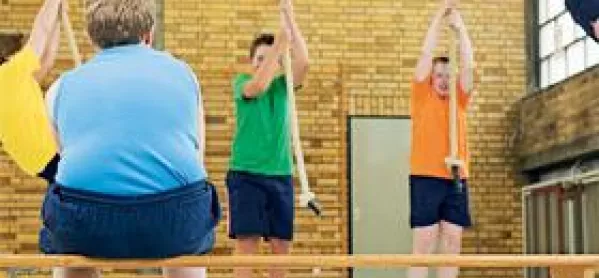School sport is shaping up, but still missing goal

Ministers were under fire this week after admitting that they did not know how many schools were still failing to provide two hours of PE a week.
As the August 2014 deadline for 100 per cent compliance arrived, the Scottish government revealed that it “expects” 98 per cent of schools to be meeting its target from the start of the new term. Although that would mean that pupils at dozens of schools were still not participating in the weekly minimum of sport, the government said that updated statistics were not due to be collected until next February.
Critics have expressed concern at this lack of up-to-date information, pointing out that the latest figures from June highlight wide variations, with 40 per cent of secondaries in some councils failing to reach minimum levels.
The revelations followed fresh concerns over childhood obesity levels, as reported in last week’s TESS, and came as the SNP pledged to use the legacy of the recent Commonwealth Games to boost activity levels. Meanwhile, critics said that although progress so far had been significant, all agencies needed accurate statistics to make sure the Games could galvanise efforts to deliver equal levels of physical education to all pupils. MSP Liz Smith, the Conservative spokesperson for culture, sport and young people, said: “If a government sets a target then I would have thought it would be important to know the facts. “I think everyone will acknowledge that good progress is being made in terms of the increased provision of PE in school. [However,] if we are to ensure that there is a lasting legacy of the Commonwealth Games, then schools, clubs, local authorities and the Scottish government, as well as SportScotland, all need to be working together. To do that they need to have the facts to hand.” Ms Smith, who sits on the Scottish Parliament’s Education and Culture Committee, also warned that although the quantity of PE was rising, the quality of lessons was “a long way off” target. Kezia Dugdale, Scottish Labour education spokeswoman, agreed. “If the increase in PE provision is as significant as claimed then it is vital that a full breakdown of the figures is published so that we can ensure full accountability and transparency of the policy,” she said. The SNP’s original target, announced in 2007, was for all pupils to receive at least two hours of PE at school each week. In 2004-05, figures showed that only 10 per cent of schools provided that amount. The target was later reduced for secondary schools to two periods totalling at least 100 minutes to address timetabling issues. Ministers also exempted S5 and S6 classes from the targets altogether. Data on progress up to February each year is published the following June in the national Healthy Living Survey. This year it showed that 96 per cent of schools were meeting the target. But several regions fell short, including East Lothian where only 33 per cent of secondaries complied. This week, the council announced that all its schools would meet the target from the start of the new term. Overall improvements in PE provision were credited to the impact of the region’s PE lead officer, appointed as part of a pound;11.6 million government programme led by SportScotland and Education Scotland. But Stirling and West Dunbartonshire councils - where the June data showed that 43 per cent and 40 per cent of secondaries were not complying with minimum levels, respectively - could not provide an update on progress before TESS went to press. The Scottish government said the investment was delivering “transformational change” nationwide as it pledged to use the “outstanding success” of Team Scotland at Glasgow 2014 to inspire more young people to become active. Hailing the June target statistics as “excellent progress”, a spokeswoman said: “From the start of the new school term in August, we expect that figure to increase to 98 per cent and we will continue to work closely with the Convention of Scottish Local Authorities, Education Scotland and SportScotland to build on this performance.”
Keep reading for just £1 per month
You've reached your limit of free articles this month. Subscribe for £1 per month for three months and get:
- Unlimited access to all Tes magazine content
- Exclusive subscriber-only stories
- Award-winning email newsletters


